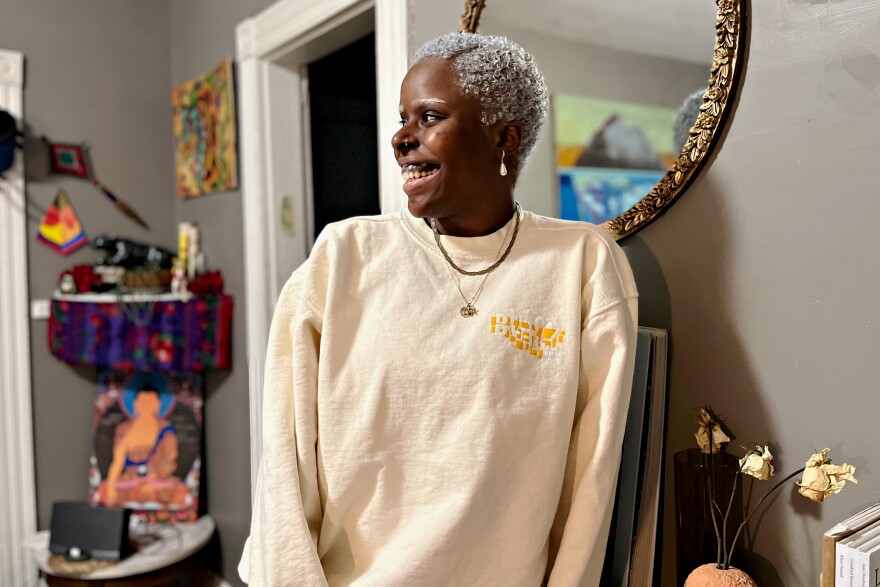In his daily work at the New Haven Pride Center for the LGBTQ community, Max Cisneros is often asked: “What is Latinx?”
“It’s a perfect opportunity to make these terms more accessible to folks and include them into the opening-up language,” Cisneros said.
According to a study by the Pew Research Center only 3% of the Hispanic population uses the term Latinx. The word emerged as a gender-neutral term for Latin Americans, purposefully breaking Spanish gendered grammar. And it’s not the only term to evolve out of the word “Latino,” which refers to a person living in Latin America or someone of Latin American descent.
For Cisneros, the New Haven Pride Center’s Latinx program officer, the term is also an opportunity to talk about language and inclusion.
“Latinx isn’t so much including a male, female or a third gender, which is the X,” Cisneros said. “To me, Latin X is more like all of Latino America.”
Much like the LGBTQA+ umbrella term, Cisneros says, Latinx is part of a tradition of evolving language. He says accessing language to affirm his own queer identity and his roots opened a space of possibilities to better serve a community he identifies with.
“But for other folks, it’s a learning curve,” he said.
Latino identity is shared among more than 20 nations, said Charles Venator-Santiago, an assistant professor at El Instituto at the University of Connecticut.
“The list of identities is just as complicated as it is here in the United States,” he said.
It’s a diverse experience that has also been swept into the term “Latinidad.”
“The problem of ‘Latinidad’ is how do you identify shared beliefs, experiences, interpretations of what it means to be Latino? Afro Latinos or women or LGBTQ,” Venator-Santiago said.
He explains that when it comes to the word “Latinx,” part of the challenge of adapting the term is generational.
Younger generations born or raised in the United States are more likely to use Latinx, but some say it doesn’t capture the racial diversity within the community.
“I’m a woman, I’m an immigrant and I’m also Black,” Danessa Pedroso said.
“People either thought that I was African American or Dominican because I spoke Spanish.”
Pedroso said she grew up between two worlds – Cuba and Connecticut. Finding a sense of identity when she moved to Hartford was difficult. Faced with culture shock and discrimination, she says fitting in was not easy.
She’s not alone. A recent study by the Pew Research Center shows that about a quarter of Latino adults say they have personally experienced discrimination or unfair treatment from other Latinos.
“When I first got here, [I was placed] in a bilingual school. And that bilingual school was a little hard just because I was either too Black to be Spanish or too Spanish to be Black,” Pedroso said.
For several years, Pedroso struggled to identify as fully Cuban, but the term Latinx helped her to bridge a shared experience with Caribbean and South American heritage.
Now Pedroso identifies as a proud Afro Latina. She said for a long time she lacked a word that she could identify with, but now her Afro Cuban heritage is essential to her identity and her self-expression.
“I think the movement of Afro Latinos – and the term ‘Latinx’ overall – has really put a light in [acknowledging] that there are Black people everywhere,” she said.


